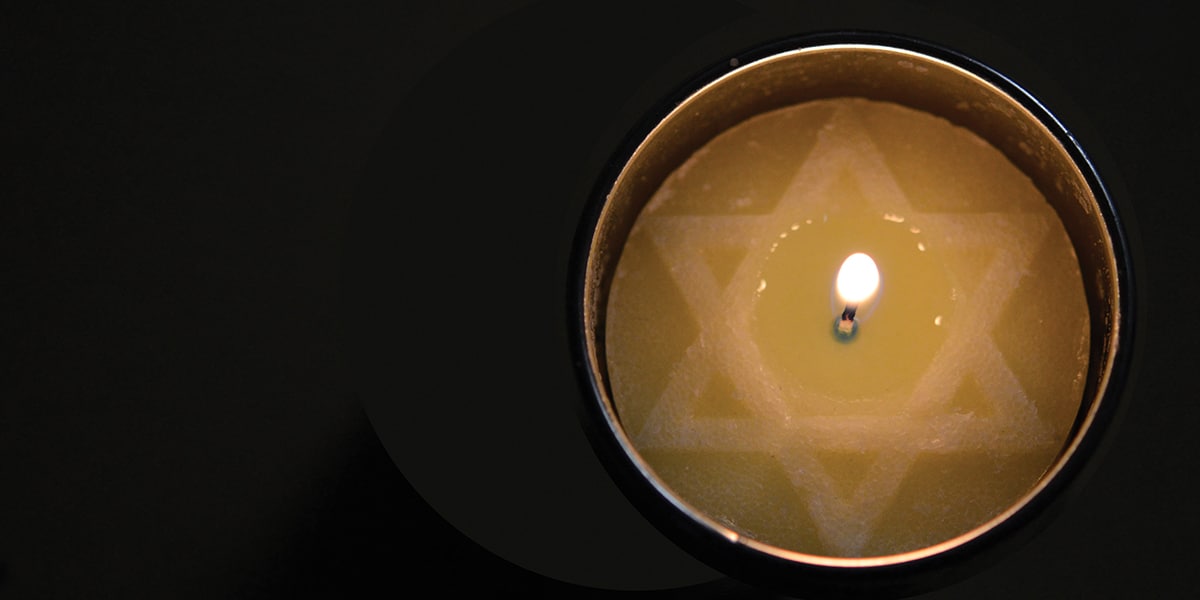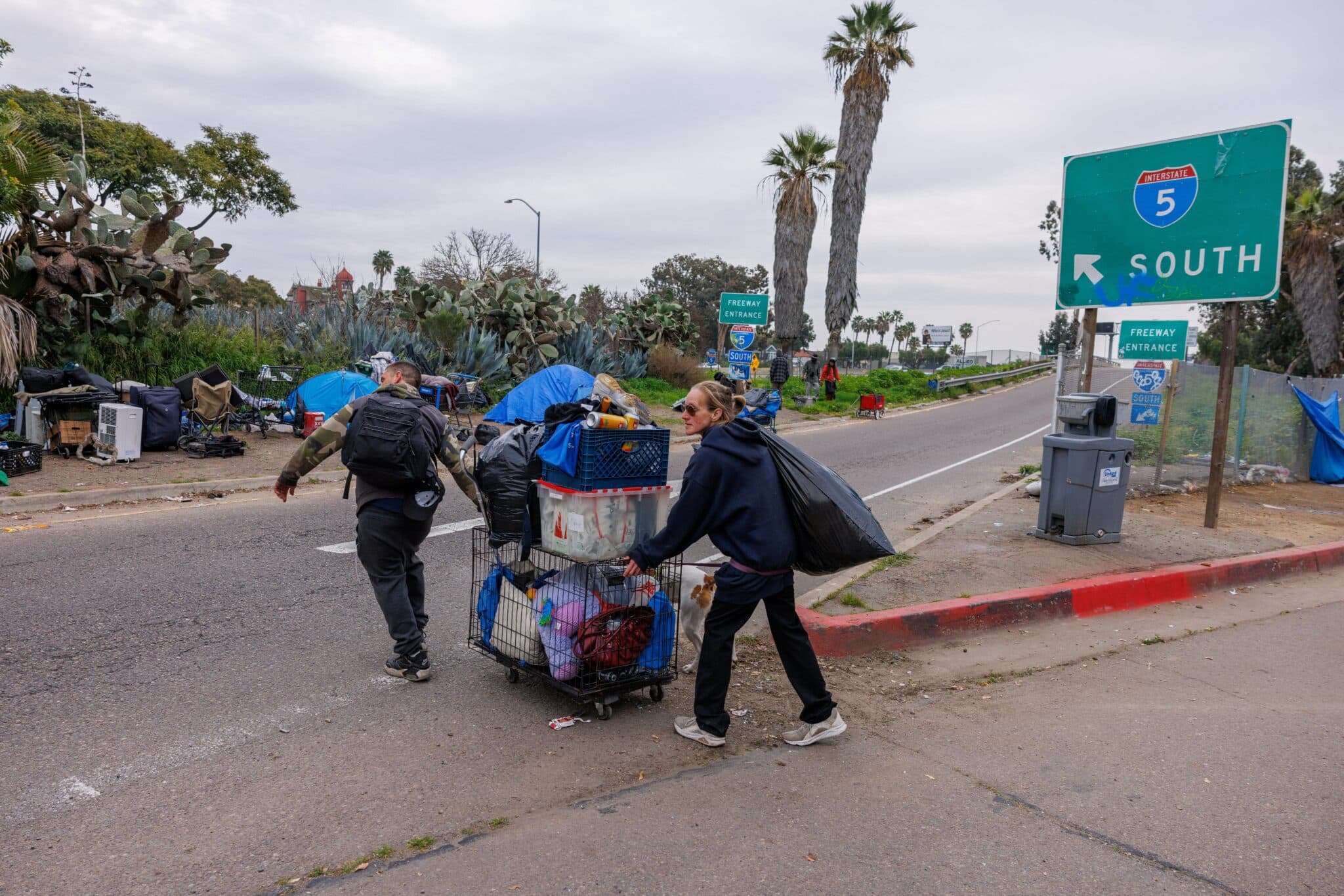“A little bit of light pushes away a lot of darkness.”
—Jewish proverb
In a Nazi-orchestrated raid on November 9, 1938, paramilitary forces and nationalists destroyed more than 7,000 Jewish-owned businesses and some 267 synagogues throughout Germany and Austria. Kristallnacht, or “The Night of Broken Glass,” was more than just the handiwork of violent anarchists. The central message intended for European Jews was simple and direct: You are no longer welcome here. Less than a year later, World War II would begin. Six million Jews would lose their lives in the death camps before their liberation in 1944 and 1945.
While our minds may immediately go to Nazi Germany as the birthplace of modern anti-Semitism, that brand of hatred took root in the United States long before the advent of World War II. In the 17th century, when the island of Manhattan was a Dutch colony, the director general at the time called Jewish immigrants “repugnant, hateful enemies and blasphemers of the name of Christ.” His name isn’t worth repeating here; better he should stay a forgotten footnote in history.
Anti-Semitism only grew from there. During the Civil War, when slavery divided our nation, many on both sides of the conflict inexplicably agreed on the negative influence of Jewish Americans on 19th-century life. Major General Ulysses S. Grant, himself an anti-Semite, likened Jews to shiftless vagabonds and called them “intolerable nuisances.”
Sadly, such bigotry has taken root in this century as well.
Rise in Violence
The Anti-Defamation League (ADL), an organization that started after the wrongful conviction of Jewish American businessman Leo Frank in 1913—and his lynching two years later—tracks hate crimes here and abroad. While some of the ADL’s policies and positions have been controversial in the past, as a watchdog group, their advocacy on behalf of Jewish people is unmatched. The ADL tracked a noticeable spike in anti-Semitic activity with 2017’s “Unite the Right” rally in Charlottesville, Virginia, where many participants chanted “Jews will not replace us!” while flashing the Nazi salute.
Time could not remedy the anti-Jewish sentiment after the rally ended. In the first month of 2020, the ADL cited over 50 anti-Semitic incidents. These included synagogues in Seattle, Washington; Springfield, Virginia; and Washington, DC, which received the same letter denouncing Jews as members of the “Synagogue of Satan.”
The swastika, once a symbol of good luck until it was hijacked by the Nazi Party in 1920, has become more visible in recent years. In January alone, the city hall in Pendleton, Oregon, was befouled with the symbol. In that same month, universities in Pennsylvania, Massachusetts, New York, Montana, and West Virginia were vandalized with swastikas and cries for violence against Jewish people, the ADL reports.
Most startling is that much of the anti-Jewish activity (read: domestic terrorism) of late can be traced back to pseudo-Christian groups such as the White Aryan Resistance, the Ku Klux Klan, and Westboro Baptist Church, all of whom espouse an anti-Christian message in the name of Christ. Real Christians should weep at the irony.
Learn, Seek, Pray
April seems the perfect time to address this growing divide. Passover begins this month, celebrating the Hebrews’ liberation from slavery in Egypt. But clearly the damaged members of our Christian family are the ones in need of deliverance. And though it is a small minority who commit acts of violence against those outside our faith, we should search our own hearts for residues of hatred and intolerance. To do that, let us . . .
Learn about the Jewish religion and its followers. A good resource is My Jewish Learning (MyJewishLearning.com), a site that provides history, weekly Torah readings, and blogs about the blessings and challenges of the Jewish faith.
Seek connection and reconciliation. The United States Conference of Catholic Bishops offers a range of useful resources on Catholic-Jewish relations, our shared history, and ways to fortify the bridge between us. Go to usccb.org to get started.
Pray for peace in our minds and hearts. Looking inward before we move outward is a good first step. We should ask ourselves what prejudices prevent us from truly living the Gospel message—a message that is disregarded when we allow our lower selves to take over.
We cannot rewrite history—though it is our duty to learn from it. And there is a legacy for us to fall back on. On June 12, 1941, in an address to the Allied delegates, Prime Minister Winston Churchill had this to say of Adolf Hitler and the evil his party was spreading like a virus: “We cannot see how deliverance will come or when it will come, but nothing is more certain than that every trace of Hitler’s footsteps, every stain of his infected, corroding fingers will be sponged and purged and, if need be, blasted from the surface of the earth.”
May that legacy of hatred suffer the same fate.








